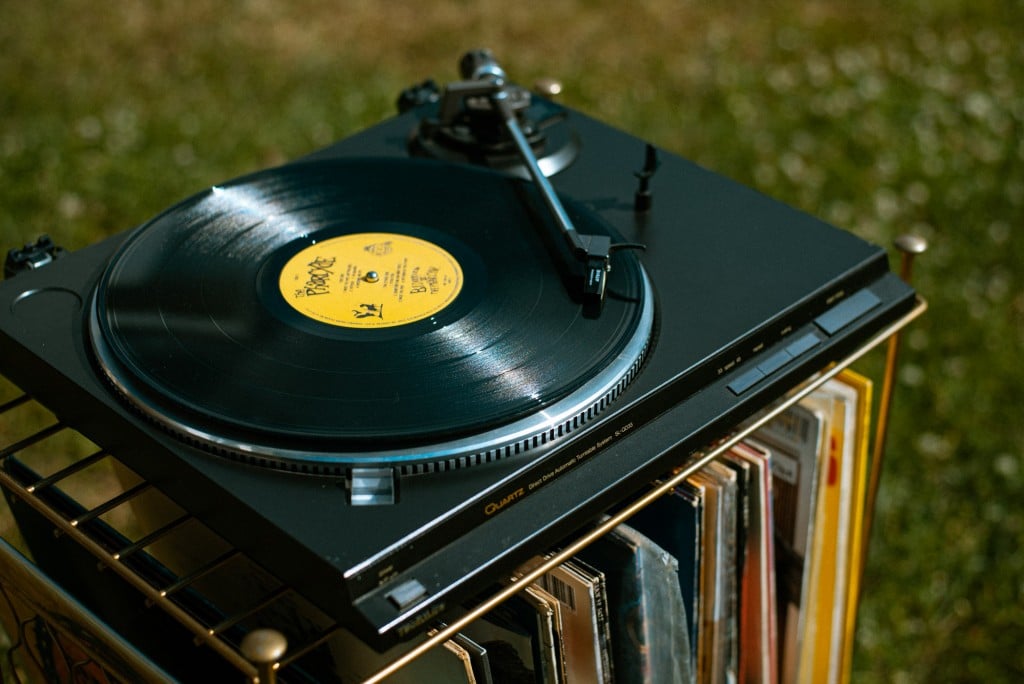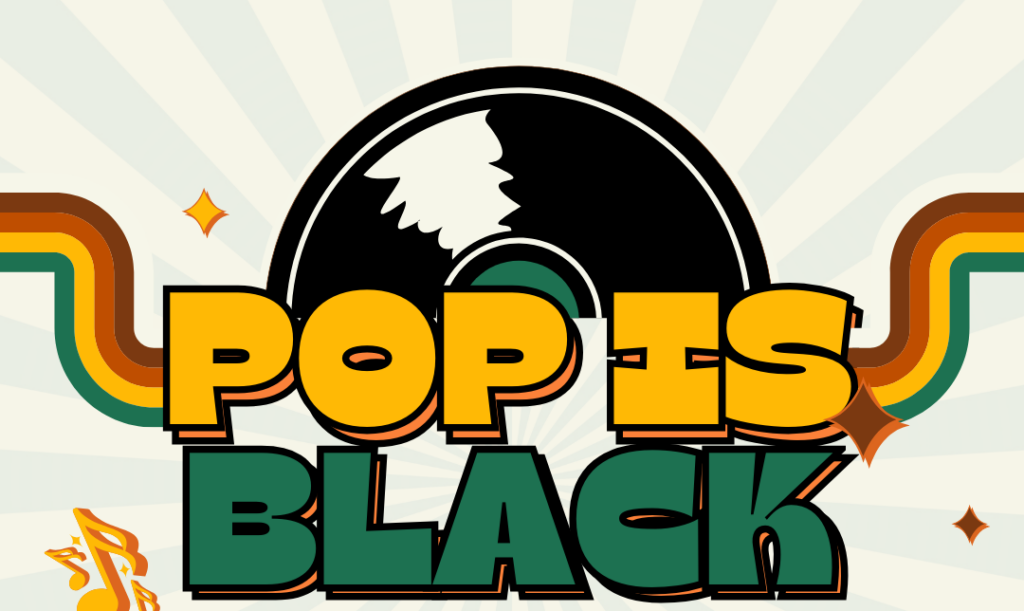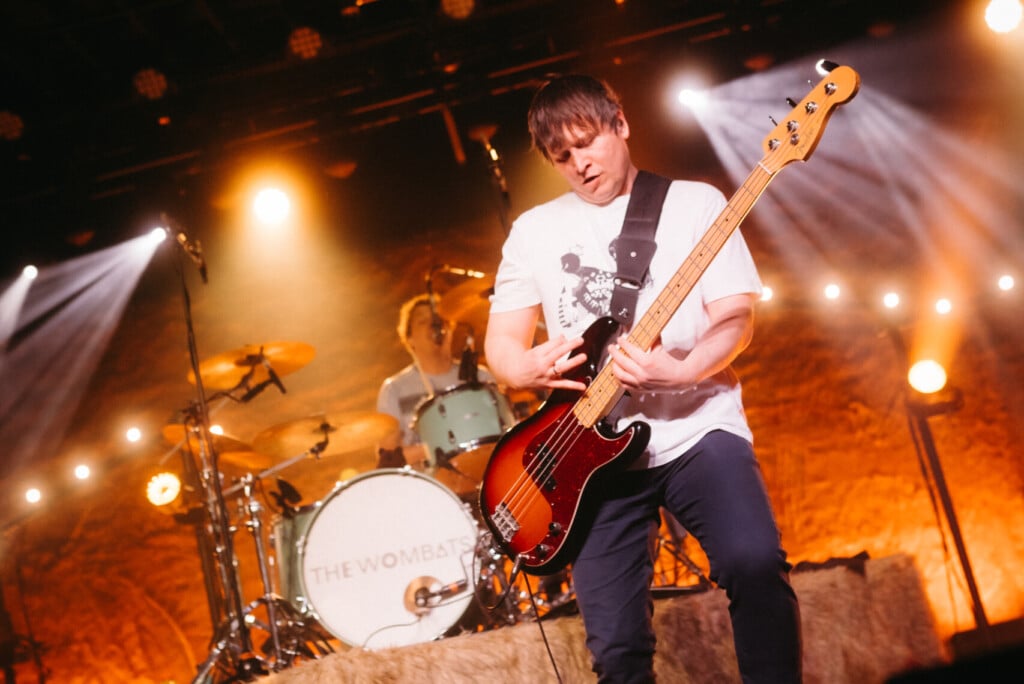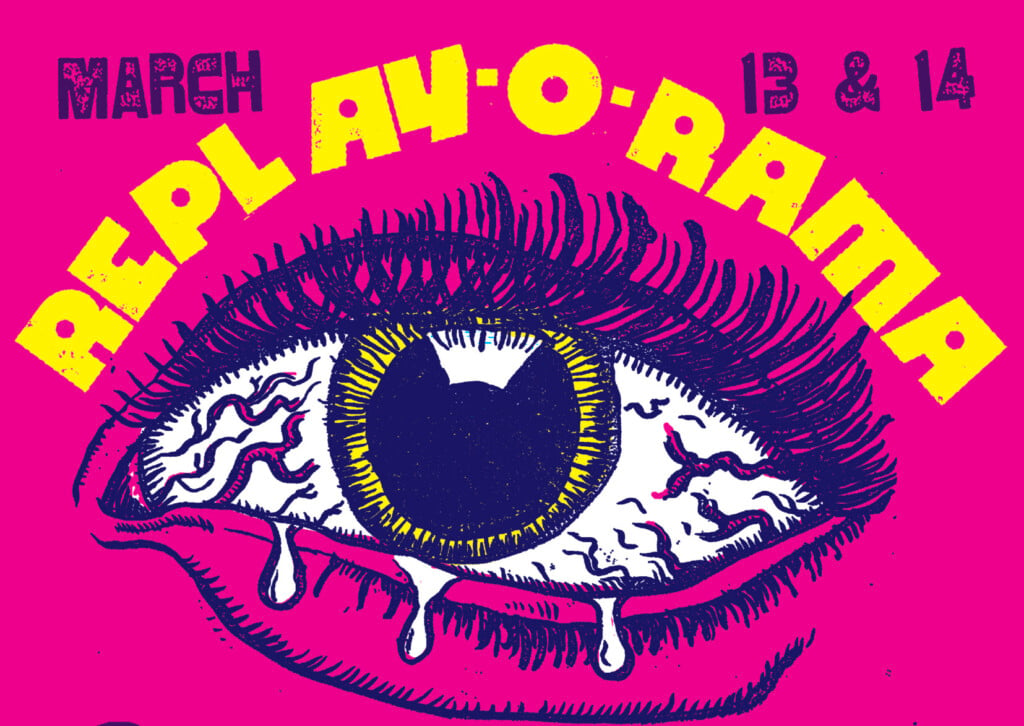Spirit Guide
Casper the Friendly Ghost was at a wishing well, and then he fell in,” Daniel Johnston says in the halting voice of a wide-eyed child. “When I was a kid, I always wondered how he died, so I came up with that.” Elements of cartoons, youth and death form an irresistible mix for Johnston, who felt such an affinity for the comic-book character that he had to construct a past for him. But once you get to know Johnston or his music — which, at the risk of sounding clichéd, are one in the same — it’s no big surprise that he has been preoccupied with Casper for most of his 41 years, drawing pictures of him along with Captain America, frogs, King Kong, flying eyeballs, ducks and aliens. Like Casper, he’s forever trapped in adolescence, living with his parents and spending all his money on comic books. And like Casper, he fears that he will repel people, always anticipating rejection yet pushing forth with hopeful resolve.
Daniel Johnston’s wild ride began in the early ’80s, when he started dubbing tapes of his music, which consisted of little more than his awkward high-pitched voice and a piano. This was also when his illness — Johnston is a severe manic-depressive — really began to manifest and have profound effects on his life and work. It’s hard to tell where he starts and the illness stops; is his music a result of his ailment, or does it actually impede what could have been? Like many people who choose the path of the musician, Johnston doesn’t want to work at a regular job, preferring to sit around listening to music, drawing, smoking and singing. Is he a typical slacker who just needs a big break, or does the illness check his motivation? Then there is the scariest question, the one that no one wants to ask: Is he any good, or is he merely a curiosity? Johnston has a small cache of chords that he works with; his songs tend to stick to the same themes (funerals, heartbreak and giddy love). And his phrasing is less than Sinatra-esque. But beauty, as they say, is in the eye of the beholder. His optimistic yet somber version of “I Saw Her Standing There” will leave you teary-eyed and changed. His stuff is so raw, his songs so guileless and vulnerable, that yes, he is fantastic. For some, he is even a genius.
Johnston’s latest release, Rejected Unknown, is the best thing he’s done since those early homemade tapes. This time, other instrumentation — including drums and horns — complements his own guitar and piano, but unlike his earlier attempts at more “produced” music, this one retains Johnston’s eccentricity and eerie grace. On it, of course, are songs about funerals. At first listen, it sounds as if he is just being offbeat and strange (with lyrics like I knew a girl at the funeral/She said she was dead), but the words are based in some reality. The songs are about his great unrequited love, Laurie, whom he met in art school at Kent State.
“When I was going to college,” he says with a slight Southern accent that reflects his West Virginia upbringing, “I met this girl. She just walked into the room of this class that I was taking, and I just fell for her right away…. She was so kind and everything. We really did get along really well, but she already was dating this undertaker guy, and so it was kind of a tragic love affair.” The irony of Johnston’s falling in love with a woman who was betrothed to a mortician is almost too perfect, but it served as a starting point for his tape-making. “I started writing a lot because of her,” he says. “She said she really liked the songs and stuff. And that really encouraged me, and I was writing all the time because of it. I started making tapes for all of my friends, and they started making me feel like I was a celebrity.”
From there, Johnston eventually went to Austin, Texas, where he distributed his tapes to passersby and pretty girls on the street. If he ran out of tapes and someone wanted one, he would simply turn on a recorder, redo the whole thing from top to bottom, then hand the tape to the person who requested it. He was soon featured on an MTV special, and thus began the cult of Daniel Johnston. His career has jumped all over the place, from a major-label deal with Atlantic (from which came the disappointing Fun) to releases through Homestead and Which? Records and deals that fell through with Elektra and Sonic Youth’s Blast First label. The last setback was due largely to his not taking his meds, though the reason he gives shows a sad, Casper-the-Friendly-Ghost outlook: “[They rejected me] because they met me.” He has worked with Half Japanese’s Jad Fair, Sonic Youth, the Butthole Surfers and, most recently, Sparklehorse. Kurt Cobain was famously photographed wearing a T-shirt emblazoned with Johnston’s drawing of a space alien and the phrase “Hi, How Are You.” Johnston is Simpsons-creator Matt Groening’s favorite musician.
When he has gone off to live on his own and pursue his music, Johnston has abandoned his medication, ending up either on the street or in a hospital. Now he lives with his folks, old-fashioned Christian people who somehow got blessed with an “outsider-music” icon. Johnston’s dad is a retired WWII vet, and his mom, Mabel, can be heard on his early tapes yelling at him (“You’ll never amount to anything! You’re lazy! You have no shame!”) in the background. To be fair, perhaps at that point his parents didn’t know he was ill; he was formally diagnosed later in life. These days his parents seem to do a good job of encouraging him and making sure he takes his meds. His father even escorts him on his tours.
“I’ve made some friends in town!” says Johnston excitedly, like a kid describing his Christmas presents. “We get together and jam. I’ll send you the tape.” The group, dubbed Danny and Nightmares, rocks more than his other stuff, but is still darn cute. “We get high and play music,” he adds with pride. “Don’t tell my dad!”
Various people come into town to visit him as well, old friends and musicians. This could well be the beginning of the richest part of his life, at least musically. But still he pines for Laurie and for the as-yet-unmet fame that he feels will get him not only the girl but also enough money to buy a house, a car, and all the comics and Beatles bootlegs he could ever want. “I just want to be professional enough someday to be a superstar,” he says. “I think Rejected Unknown sounded good enough to be a professional. I think that in the future, I will be able to sound even better; that’s my hopes, that’s my dreams.”
He speaks with Laurie sporadically on the phone. She divorced the undertaker a few years ago. “I talked to her last year,” Johnston says. “I just decided that I should stop calling her. I thought, ‘Well, I’ll wait and call her again when I’m a superstar.’ You know, when I’m really rich. Then I can call her and say, ‘Hi there….'”
“Can I take you on a limo ride?”
“Right!” he says with a laugh, but the whole conversation has a twinge of sadness in it. “I’m famous to a certain extent,” he adds, “but it is in the underground. It is still not the mainstream. But I make enough money from art shows, playing out and publishing [rights] to get by.” (Johnston’s songs have been licensed for Target commercials, the TV show My So-Called Life and the movie Kids.)
The release of his new album was marked by a small tour and will, he hopes, lead to more opportunities to grow and collaborate with other musicians. He has a fantasy about that, and it has to do with the title Rejected Unknown. “There was a song called ‘Rejected’ that we were working on with producer Brian Beattie for the recording sessions,” he says. “Then there was a song that I’d done for a session with Atlantic, called ‘Unknown.’ It was a fantasy of a recording session where everyone would die.” Johnston laughs nervously before continuing. “I was just kidding myself, you know. As soon as you sang, you would die, and everyone would take turns singing and dying. I was just thinking it to myself as a joke. I wish it would never happen.” He’s a mix of happy-go-lucky and abject pain, though these days he really is doing better. “I try to keep busy,” he says. “I keep writing, I keep drawing, I have a lot of art shows. I get enough money to buy as many comic books as I want. And I keep buying as many records as I want. So I’m happy,” he says firmly. “I really am.”




